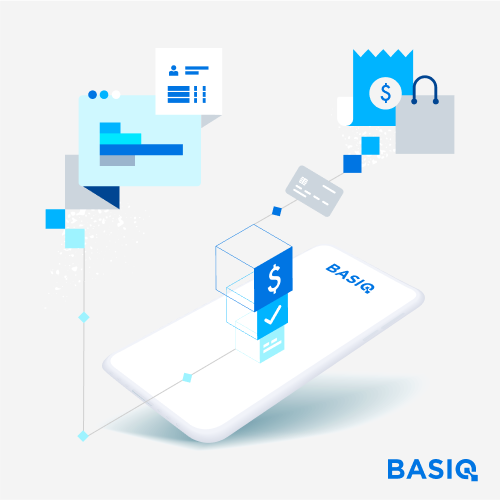
Basiq launches Smart Payments to accelerate Australian fintech ecosystem
Basiq has announced an Australian first as it launches Smart Payments, integrating access to financial data with payment services on the Basiq platform. With a proven record in accessing financial data, the addition of payment services will enable both read and write services to be possible on the Basiq platform as Open Finance continues to evolve. This will help supercharge Fintechs as they accelerate the launch of new services in the market.
Combining data and payments on the Basiq platform will address many challenges that Fintechs face. When on-boarding a consumer for payments services, Fintechs often need to conduct bank account verification to ensure it is the right owner, along with the correct bank account details (account number and BSB) to minimise errors. Other challenges include optimising the process of collecting two sets of consent from a consumer (one for data access and one for payments) and checking there are sufficient funds ahead of making a payment.
Having upgraded its platform earlier this year with Basiq 3.0 to provide access to Open Banking data as well as data from non-CDR sources, the platform has now grown to provide payment services. Accessing financial data (read access) and executing payments (write access) are core services that Fintechs need to successfully launch their product to market. The ability to do this using a single platform saves time & money and enables Fintechs to focus on creating value for their end users.
“We’ve been working closely with Fintechs in the market and the ability to have data and payments on the one platform is a problem that hasn’t been solved. Bringing these services together on the Basiq platform helps streamline payments, reduce fraud, and generate unique insights to deliver engaging customer experiences. It will speed up the time it takes a Fintech to build and launch their service to market, something we are really focussed on achieving” says Damir Cuca, CEO and founder of Basiq.
The underlying payment execution on the Basiq platform will be powered by Zepto, an API led payments innovator. Damir Cuca said, “Payments are a very complex area and working with Zepto to power the payment execution is a great fit. Basiq’s focus is on Smart Payments, leveraging our years of experience in working with financial data and integrating payment services with this to deliver unique value and insights.”
Chris Jewell, Zepto CEO said, “Our vision supports a global embedded payment ecosystem powered by real-time payments and informed and initiated by an open data framework. Against this backdrop our partnership with Basiq is underpinned by our mutual commitment to deliver best-in-class product offerings. It’s exciting to be partnering with Basiq in this space, and we look forward to powering their payment products and features.”
Accessing financial data and executing payments has often meant the use of two different providers. Apart from two separate integrations and two consent management flows, there is a lack of context in knowing a consumer’s financial situation when payments are executed. One of the common challenges in payments is around failed payments. Issues such as incorrect bank account details due to manual errors and insufficient funds executing a payment occur on a regular basis. This often leads to a bad customer experience and in some cases, fees for businsses and/or consumers. Using data and payments together on the Basiq platform means these issues can be eliminated altogether, a win-win for both businesses and consumers.
Basiq also announced that it will continue to evolve Smart Payments with Payment orchestration services to be made available later this year. These services provide Fintechs with the ability to leverage insights from consumer’s financial data to gain context on how and when to make a payment. For example, knowing when a person’s salary has arrived in their bank account and with the consent of the consumer, automatically moving 10% of this into an investment account; or knowing not to execute a direct debit payment if there are insufficient funds. What this means is that Fintechs can still use the Basiq platform to access these insights and workflows, but continue using their existing provider to execute the actual payment.


